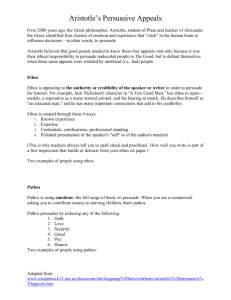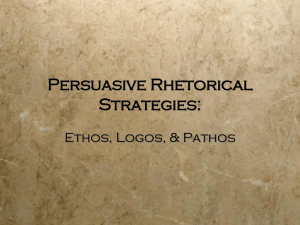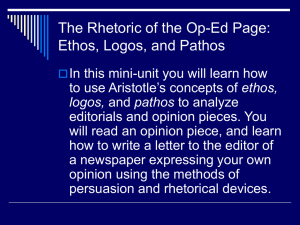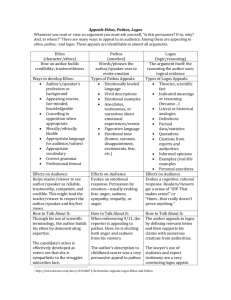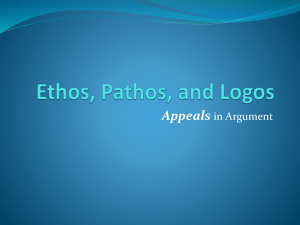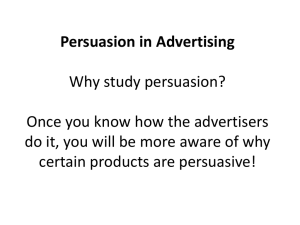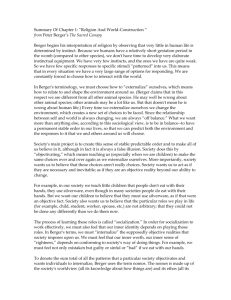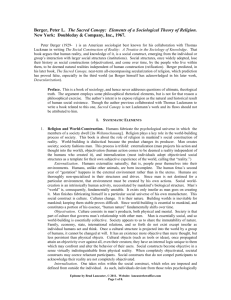Aristotle`s Persuasive Appeals Ethos, Logos, Pathos (& Nomos
advertisement
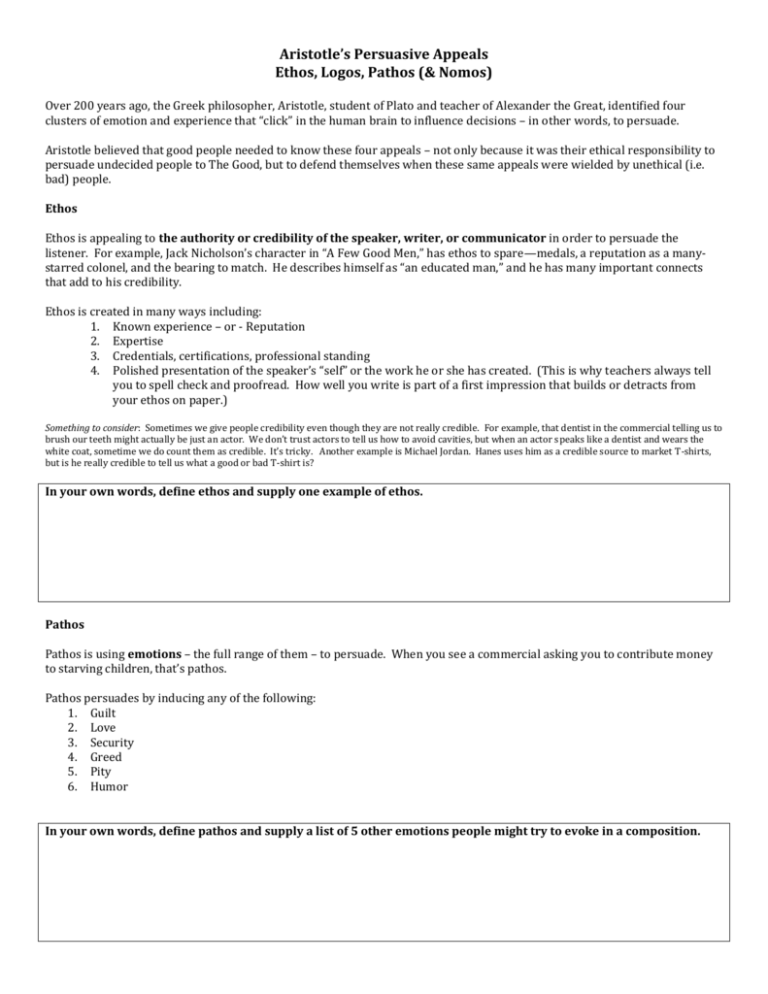
Aristotle’s Persuasive Appeals Ethos, Logos, Pathos (& Nomos) Over 200 years ago, the Greek philosopher, Aristotle, student of Plato and teacher of Alexander the Great, identified four clusters of emotion and experience that “click” in the human brain to influence decisions – in other words, to persuade. Aristotle believed that good people needed to know these four appeals – not only because it was their ethical responsibility to persuade undecided people to The Good, but to defend themselves when these same appeals were wielded by unethical (i.e. bad) people. Ethos Ethos is appealing to the authority or credibility of the speaker, writer, or communicator in order to persuade the listener. For example, Jack Nicholson’s character in “A Few Good Men,” has ethos to spare—medals, a reputation as a manystarred colonel, and the bearing to match. He describes himself as “an educated man,” and he has many important connects that add to his credibility. Ethos is created in many ways including: 1. Known experience – or - Reputation 2. Expertise 3. Credentials, certifications, professional standing 4. Polished presentation of the speaker’s “self” or the work he or she has created. (This is why teachers always tell you to spell check and proofread. How well you write is part of a first impression that builds or detracts from your ethos on paper.) Something to consider: Sometimes we give people credibility even though they are not really credible. For example, that dentist in the commercial telling us to brush our teeth might actually be just an actor. We don’t trust actors to tell us how to avoid cavities, but when an actor speaks like a dentist and wears the white coat, sometime we do count them as credible. It’s tricky. Another example is Michael Jordan. Hanes uses him as a credible source to market T-shirts, but is he really credible to tell us what a good or bad T-shirt is? In your own words, define ethos and supply one example of ethos. Pathos Pathos is using emotions – the full range of them – to persuade. When you see a commercial asking you to contribute money to starving children, that’s pathos. Pathos persuades by inducing any of the following: 1. Guilt 2. Love 3. Security 4. Greed 5. Pity 6. Humor In your own words, define pathos and supply a list of 5 other emotions people might try to evoke in a composition. Logos For all of us Western thinkers, logos is the most essential part of the appeals team. We consider logos as key to critical thinking and critical analysis. While we need to be acutely aware of the emotional, social, and psychological forces at work, we need to be especially atuned to logic, facts, evidence, or what must of us will agree is “real.” For example, in courtroom scenes, evidence like sworn testimony, phone records, and legal documents make the logos pile bigger. Logos is invoked through the use of the following: 1. Detains in writing (like photographs or evidence) 2. Statistics, if gathered with credible methods 3. Expert testimony (and it’s ethos that establishes is someone is an expert. Beware Michael Jordan). 4. Facts (especially when they can be verified by multiple sources) 5. Definitions used in the disciple being discussed 6. Witness statements under oath In your own words, define logos. And here is one bonus appeal not discussed as often as the three previous appeals: Nomos Best described as the use of shared cultural beliefs to persuade, nomos works like this: If I can find some common ground between us, I can use it to persuade you to do…..whatever. Scholar and rhetorician Kenneth Burke calls this “identification” and says it was the most powerful persuasive tool at our disposal. (Andy my name-dropping there was a little ethos-building on my part). Nomos, then, is invoked by looking for the following: 1. What do we have in common? For example, do we all believe that “all men were created equal”? Do we all believe in “the golden rule?” 2. How can this shared belief be exploited or used to make us see more things we have in common? 3. And How can I use our common beliefs to persuade you that, since I’ve come to a conclusion based on our shared belief, so should you? For example, if we both believe all men were created equal, then can I get you to agree with me that all people deserve the same rights in America? If so, can we then agree that even though we have different views of morality, marriage is a right in the United States that should be extended to both heterosexual and homosexual couples? In your own words, define nomos.
